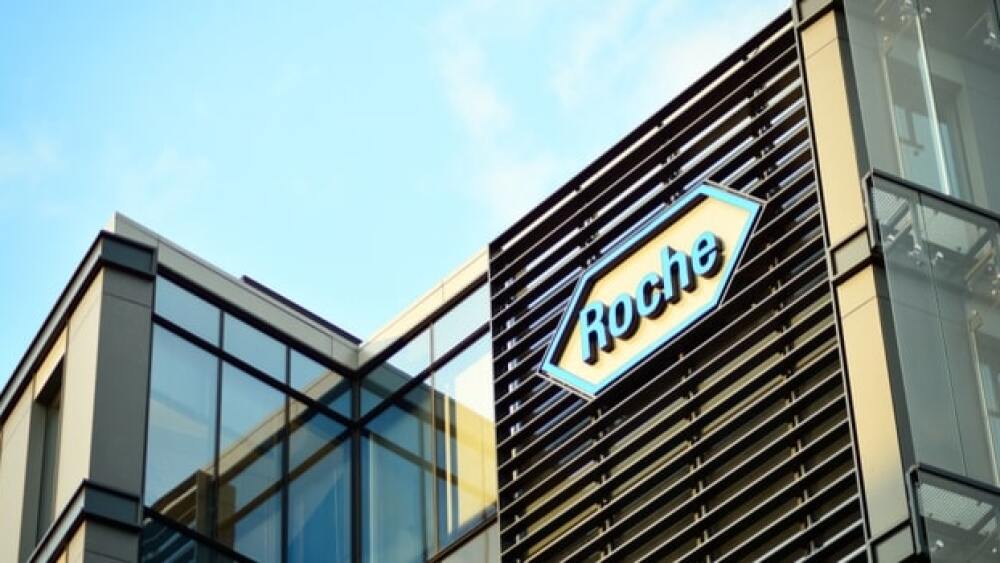The experimental drug, being developed to treat immunoglobulin A nephropathy, is IONIS-FB-L Rx, which hit the mark in a Phase II study showing a change in urinary protein after 29 weeks of treatment.
Grand Warszawski/Shutterstock
Swiss pharma giant Roche is pushing deeper into the immunoglobulin A nephropathy (IgAN) space. The company is licensing an investigational antisense medicine from longtime partner Ionis Pharmaceuticals and plans to drive it into Phase III studies.
The experimental drug in question is IONIS-FB-L Rx, which hit the mark in a Phase II study showing a change in urinary protein after 29 weeks of treatment. Full data from this mid-stage study has been submitted for presentation at upcoming medical conferences.
In 2018, Roche and Ionis inked a $700 million deal to evaluate IONIS-FB-L Rx as a potential medication designed to slow or stop the progression of geographic atrophy due to age-related macular degeneration. For this indication, the therapeutic is being assessed in the Phase II GOLDEN trial.
IONIS-FB-L Rx is an antisense drug that uses Ionis’ LIgand Conjugated Antisense (LICA) technology. It is designed to reduce the production of FB, a key protein in the complement innate immune system. FB is predominately produced in the liver and circulates throughout the vascular system, including vessels in the eye and kidney.
IgA nephropathy, also known as Berger’s disease, is a rare kidney disease that can lead to renal failure. Berger’s disease occurs when the deposits of the antibody IgA build up in the kidneys, causing inflammation that can lead to damage to the organs. The deposits can cause the kidneys to leak blood and protein into the urine. IgA nephropathy complications can include high blood pressure and chronic kidney disease, which can sometimes progress to kidney failure.
A Hotly Contested Space
Last year, Calliditas Therapeutics scored its inaugural regulatory approval in the United States for Tarpeyo, the first drug to decrease urine protein in IgA nephropathy.
Roche intends to take the Ionis-developed asset and advance it through late-stage studies and potential commercialization. IgAN is a hotly-contested area with multiple companies hoping to carve out a niche. Last month, Alnylam announced plans to take cemdisiran, an RNAi mono-therapeutic into a Phase III trial for this indication. The decision followed positive topline results from a Phase II trial that showed patients who received cemdisiran had a 37% reduction in urine protein to creatinine ratio compared to placebo.
Chinook Therapeutics is also developing an asset for IgAN, but its experimental drug BION-1301 is not as far along as either Roche or Alnylam. BION-1301, an anti-APRIL monoclonal antibody, is being studied in a Phase I/II trial. In May, Seattle-based Chinook presented updated data from the study that showed BION-1301 demonstrated an approximate 50% reduction in urine protein after three to six months of treatment. Additionally, the company noted those reductions improved over time, with a reduction of about 70% at one year and beyond in several patients.
In its announcement, Ionis did not specify when Roche might begin its Phase III trial of IONIS-FB-L in IgAN.
“Roche’s decision to advance the program reaffirms our shared confidence in the ability of Ionis’ antisense medicines to effectively target the root cause of difficult to treat diseases like immunoglobulin A nephropathy,” Michael McCaleb, vice president of clinical development at Ionis said in a statement. “The results of the Phase II study provide initial clinical evidence that IONIS-FB-L Rx reduces complement and protein levels in the urine of patients with IgAN.”
Under terms of the deal, Ionis will receive $55 million from Roche for the licensing fee, as well as for achieving a development milestone in the GOLDEN study.





